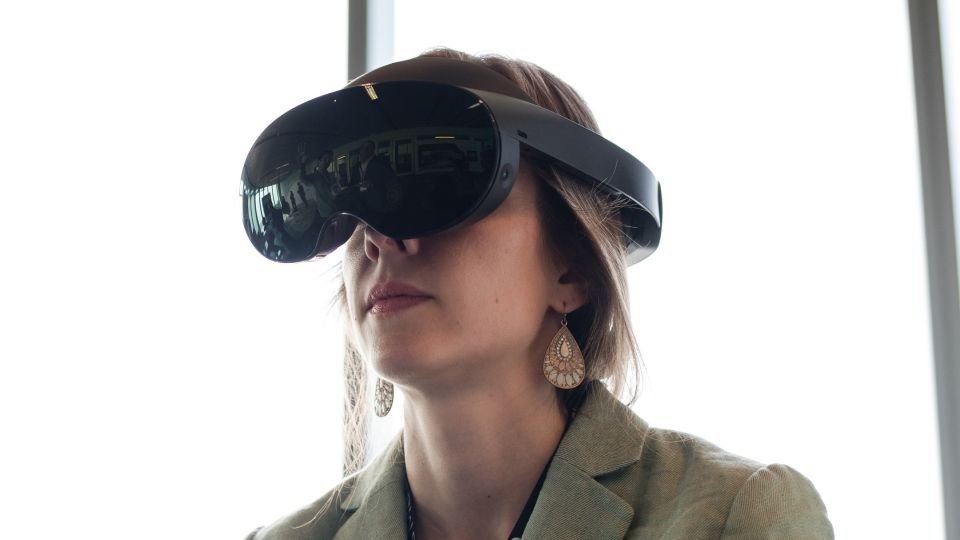Are Metaverse Technologies Unleashing New Avenues for Educators to Inspire Students?
In recent decades, digital technologies have reshaped the landscape of education, from basic calculators to the ubiquity of laptops, tablets, and the indispensable video conferencing tools that facilitated the transition to online learning during the pandemic. Technology has become integral to both teaching and learning processes. However, the emergence of metaverse technologies, particularly Virtual Reality (VR) and Augmented Reality (AR), heralds a new era in education, offering innovative avenues for teachers to ignite students’ inspiration. In this article, we explore how these technologies are already making an impact and their potential to revolutionize the educational landscape.
Understanding the Metaverse
The metaverse represents the next evolution of the internet, encompassing a diverse array of technologies. These include VR headsets, which immerse users in entirely new environments, AR glasses poised to overlay computer-generated images onto the real world, and mixed reality (MR) experiences that seamlessly blend physical and virtual realms. Metaverse technologies introduce a 3D, immersive experience that fosters a profound sense of presence, transporting individuals to different places and facilitating human interactions as if they were physically present together.
Transforming Education
Metaverse technologies offer educators new tools to excel in their craft. While these technologies are in their infancy, early indicators show promising results. A PwC report revealed that 40% of VR learners exhibit increased confidence in applying what they’ve learned and a staggering 150% improvement in engagement during classes. Findings from the XR Association (XRA) and the International Society for Technology in Education (ISTE) indicate that 77% of educators believe immersive technologies fuel curiosity and enhance student engagement in the classroom.
Evidential Success
In a randomized control study focusing on the VR mathematics program Prisms, students immersed in VR achieved test scores 11% higher than their peers in the control group. Additionally, students demonstrated enhanced confidence, engagement, and the ability to articulate complex mathematical concepts. Morehouse College in Atlanta, Georgia, an early adopter of VR, reported that students learning in VR scored an average of 85, surpassing scores of 78 for in-person instruction and 81 for traditional online methods. The college also noted improved attendance and heightened student engagement.

The Path Forward
In the pursuit of ensuring that more educators and students benefit from these transformative technologies, we are pleased to announce a new partnership program. This initiative aims to assist college students in the United States in leveraging VR for learning. As the new academic year commences, we are also exploring ways to enhance the accessibility of educational resources within the Meta Quest store for Meta Quest users.
We have collaborated with 15 universities across the U.S. actively embracing immersive learning. These institutions are integrating virtual reality into their classrooms to explore the potential contributions of immersive technologies to the future of education. Partner universities include:
Stanford University, implementing the BodySwaps app to teach soft skills to Business School students.
Arizona State University, employing VR for language practice in various virtual environments.
New Mexico State University, utilizing VR across multiple subjects, including criminal justice for virtual crime scene investigations.
University of Iowa, using VR for soft skills training in business programs.
Purdue Global, offering virtual simulations for nursing training.
University of Alabama at Birmingham, teaching business courses in a virtual campus partnership with VictoryXR.
Nova Southeastern University, enhancing medical education through VR organ anatomy lessons.
Miami Dade College, creating a virtual campus for courses in music, architecture, research, chemistry, biology, and more.
Morehouse College, establishing a digital twin campus for a diverse range of subjects, including chemistry, biology, business, and journalism.
Education Shelves in Meta Quest Store
To facilitate the discovery of age-appropriate educational content in the Meta Quest store, we are actively exploring new methods to spotlight relevant apps. Dedicated educational shelves are being tested to support parents, teachers, and students as they embark on their educational journeys, covering subjects such as science, technology, engineering, mathematics (STEM), history, language, and more.
The integration of metaverse technologies in education promises to reshape the way we teach and learn, offering immersive experiences that can unlock students’ potential and inspire a new generation of thinkers and creators.
More on:

